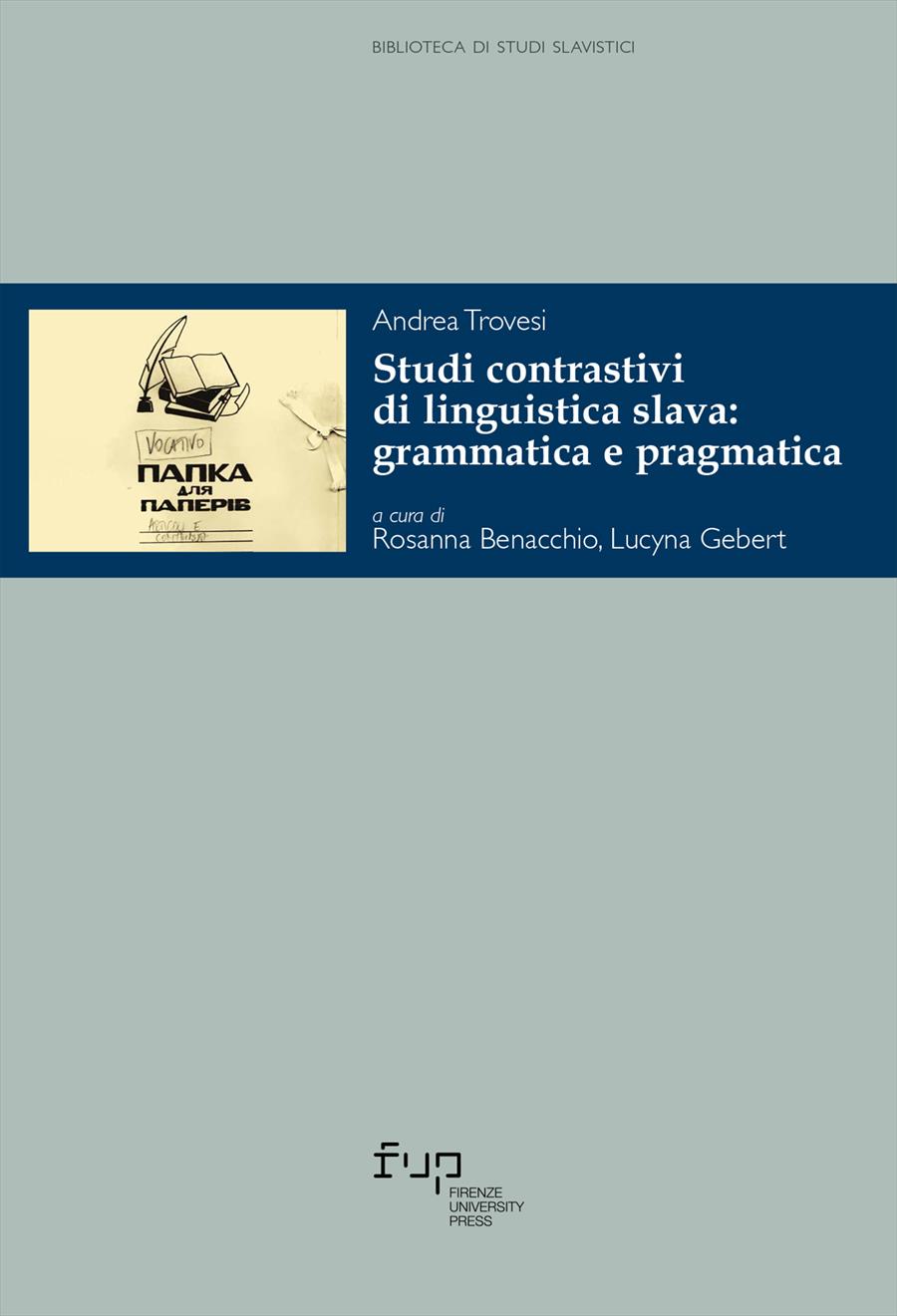Concorrenza e/o alternanza di ‘vocativo: nominativo’ nei termini volgari in serbo(croato), polacco e bulgaro. Un’analisi qualitativa
- Andrea Trovesi
- © 2023 Author(s) |
- CC BY 4.0
- DOI: 10.36253/979-12-215-0216-9.11
In those Slavic languages where the vocative inflectional case endings are used inconsistently, a statistically increased occurrence of vocative’s endings can be observed with nouns having a diminutive or hypocoristic semantics. Assuming that is the ‘affective charge’ of some specific nouns which enhances the probability of vocative case forms, the present paper has two aims: 1. to verify empirically in three Slavic languages (Serbian, Polish, Bulgarian) whether the vocative case is better preserved with nouns having a derogatory semantics (insults and bad words), 2. to establish which are the rules governing their use.
- Keywords:
- Vocative case,
- Nominative case,
- Slavic languages (Serbian,
- Polish,
- Bulgarian),
- Derogatory words,
- Competing inflectional case endings,
Sapienza University of Rome, Italy - ORCID: 0000-0001-7107-5657
- Donati, M. 2010. "Per una teoria del vocativo. Persona, sistema e asimmetria". Linguistica e Filologia 30: 11-47.
- Duranti, A. 2000. Antropologia del linguaggio. Roma: Meltemi.
- Nicolova, R. 1984. Pragmatičen aspekt na izrečenieto v bălgarskija knižoven ezik. Sofija: Narodna Prosveta.
- Piper, P., Klajn, I. 2014. Normativna gramatika srpskog jezika. Novi Sad: Matica Srpska.
- Qvonje, J.I. 1986. Uber den Vokativ und die Vokativformen in den Balkansprachen und im Europaischen Sprachareal. Copenhagen: Department of Modern Greek and Balkan Studies.
- Topolińska, Z. 1973. Vocativus – kategoria gramatyczna. In M. Jelínek, M. Grepl (red.). Otázky slovanské syntaxe, III. Modální vystavby vypovědi v slovanskych jazycích. Brno: Universita J.E. Purkyně: 269-274.
- Trovesi, A. 2008. "Il vocativo nelle lingue slave: un quadro articolato". In A. Trovesi (a cura di). Le lingue slave tra innovazione e conservazione: grammatica e semantica (I Incontro di Linguistica slava; Bergamo, 4-5 maggio 2007). Linguistica e Filologia 26: 207-34.
- Trovesi, A. 2010. Instabilità categoriale e oscillazioni funzionali del vocativo nelle lingue slave. Casi di convergenza funzionale tra vocativo e vezzeggiativi. In R. Benacchio, L. Ruvoletto (a cura di). Lingue slave in evoluzione. II Incontro di Linguistica slava. Padova: UNIPRESS: 179-190.
- Trovesi, A. 2012. Desinenze di vocativo come formanti antroponimici. I nomi propri maschili in -e e -o nelle lingue slave. In F. Biagini, S. Slavkova (a cura di). Contributi allo studio della morfosintassi delle lingue slave. Bologna: Bononia University Press: 394-406.
Chapter Information
Chapter Title
Concorrenza e/o alternanza di ‘vocativo: nominativo’ nei termini volgari in serbo(croato), polacco e bulgaro. Un’analisi qualitativa
Authors
Andrea Trovesi
Language
Italian
DOI
10.36253/979-12-215-0216-9.11
Peer Reviewed
Publication Year
2023
Copyright Information
© 2023 Author(s)
Content License
Metadata License
Bibliographic Information
Book Title
Studi contrastivi di linguistica slava: grammatica e pragmatica
Editors
Rosanna Benacchio, Lucyna Gebert
Authors
Andrea Trovesi
Peer Reviewed
Number of Pages
204
Publication Year
2023
Copyright Information
© 2023 Author(s)
Content License
Metadata License
Publisher Name
Firenze University Press
DOI
10.36253/979-12-215-0216-9
ISBN Print
979-12-215-0215-2
eISBN (pdf)
979-12-215-0216-9
Series Title
Biblioteca di Studi Slavistici
Series ISSN
2612-7687
Series E-ISSN
2612-7679
